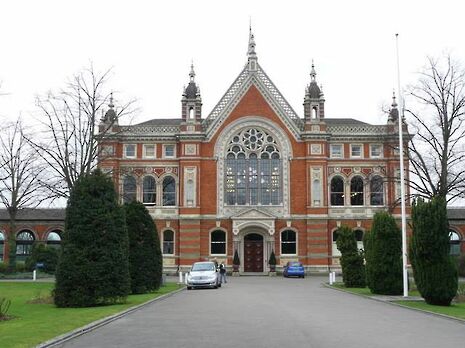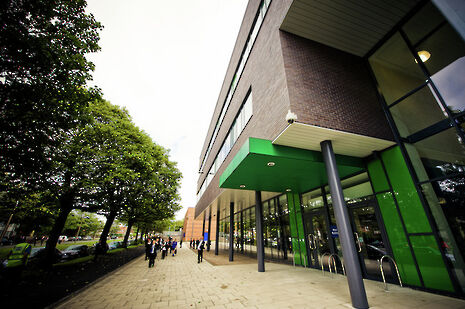This House Would Send its Children To Private School
Jack May and Charlotte Taylor put forward their arguments on the merits of private education ahead of tonight’s Union debate

FOR - Jack May
I’d like to make something quite clear at the outset: on a purely philosophical level, I believe the principle of private education to be completely wrong. Knowledge is a human fundamental, like health, which should not be sold as a commodity, where he who pays highest gets the best product. But it’s worth acknowledging that it’s a difficult question when we, as (predominantly) young, unmarried undergraduates, neither have children nor have any particularly immediate plans to have them.
However, were I to have children, I sincerely hope that I would have the strength to put people before principles. It is a simple and sad fact that class sizes in private schools are much smaller than those in state schools. Whilst there is, on average, one teacher for every twenty two pupils in the state sector, this figure falls to one teacher for every nine pupils in the private sector. Larger class sizes mean that teachers are not able to offer the same consistently high levels of care to every single child – there is simply no way it’s possible. Teachers are only (an incredibly overworked, overtired and underpaid class of) human. Furthermore, the higher level and quality of resources and staffing that private schools are able to provide means that they are often better-equipped to manage pupils with special needs or learning disabilities and do so with greater effectiveness than state schools can.
On principle, I would want to avoid putting my children through private education – the large majority of private school alumni I know are either imbued with a sickeningly smug aura of faux-debonair entitlement, or crippled by a cruel cocktail of guilt and intense self-consciousness. I wouldn’t want to do that to my children without just cause. However, if my child were falling by the wayside in an oversized class with an overworked teacher in an oversubscribed school, or not given due attention to their serious learning disabilities (that could end up both holding them back academically and shattering her self-confidence), I would sincerely hope to have the fortitude to put my children before my beliefs. No matter how dented my wallet would inevitably become, or how many summer holidays would be sacrificed, I would want to watch my children leave school at eighteen knowing that I had done absolutely everything in my power to give them the very best start in life that they can possibly have. That seems to me to be the most fundamental duty of any parent.
What we need is political leaders that have the courage to give education the huge increase in funding it deserves – to give state school teachers salaries proportionate to the exhaustingly difficult jobs they do, to give schools the funding they need to bring class sizes down and take learning support facilities and quality of care up, and to give every child an equally excellent start to life no matter how wealthy their parents are. Until we have leaders that can do all this, parents nationwide will be faced with the same torturous questions: “Is it worth it?”, or worse, “What if I’d done it?”.
Until that day, I hope very deeply that my house would send its children to private school if it had to.

AGAINST - Charlotte Taylor
Britain is one of the few countries in Europe where you can send your child to private school without impunity – at least according to Anthony Sheldon (head of Wellington College), who proposed earlier this week that households who earn upwards of £80,000 should have to pay a “contribution” towards their education if they attend a top state school. This statement occurred at the same time as Becca Atkinson in the University of Bristol’s Tab - read by around 40,000 people - argued that private schools are “obviously” superior to state schools. The moral implication of these statements is plain: if parents can afford it they ought to send their child to private school in order to give the poorest children a chance.
What both these individuals accept unconditionally is that the division between private and state schools is permanent, and cannot be remedied. In doing so they compound the problem; as long as parents choose to send their children to private over state there will always have to be an attainment gap which private schools will have to win to justify their existence. This doesn’t mean that private schools are better as such: they merely have the number of staff and monetary resources to encourage those would normally not achieve get the marks and contacts they need to succeed, a luxury many oversized and underfunded state schools do not.
It would seem that a simple increase in spending on education would resolve this disparity in access and results. The difficulty is that those who are best placed to pay for this increase are usually those who enrol their children in private education and are uninterested in and unwilling to pay for an education system they have no stake in. This results in the gross divide in Britain between the private and state school which continues throughout life into university, employment, and the highest offices of state. The private sector of schooling does not create a meaningful standard against which state schools can be compared and is damaging to the state of education as a whole.
Sheldon’s comments aim barbs at the wrong group. We should not castigate the wealthy that send their children to state schools. Equality can only be achieved in education, and British society as a whole, if everyone has a vested interest in the state of education. This cannot be achieved while private schools continue to gorge themselves on the resources and individuals which would have a wider and greater impact if they could be assigned to state education.
Our current educational system starts the cycle of inequality which begins the cycle of inequality that determines the life spans of the majority of people and, as a result, education is never just a matter of transferring knowledge but determining the form of our society. As long as our education system continues to be divided between the have-and-have-nots of private and state education our society will be too.
 Comment / Plastic pubs: the problem with Cambridge alehouses 5 January 2026
Comment / Plastic pubs: the problem with Cambridge alehouses 5 January 2026 News / News in Brief: Postgrad accom, prestigious prizes, and public support for policies11 January 2026
News / News in Brief: Postgrad accom, prestigious prizes, and public support for policies11 January 2026 Theatre / Camdram publicity needs aquickcamfab11 January 2026
Theatre / Camdram publicity needs aquickcamfab11 January 2026 News / Cambridge academic condemns US operation against Maduro as ‘clearly internationally unlawful’10 January 2026
News / Cambridge academic condemns US operation against Maduro as ‘clearly internationally unlawful’10 January 2026 News / SU stops offering student discounts8 January 2026
News / SU stops offering student discounts8 January 2026








